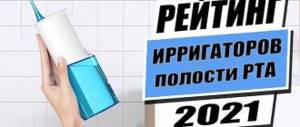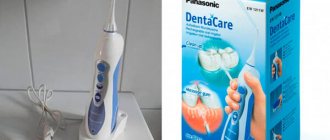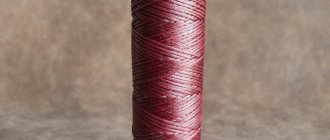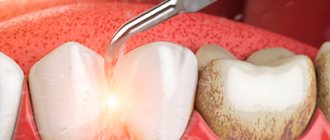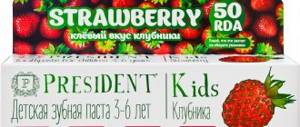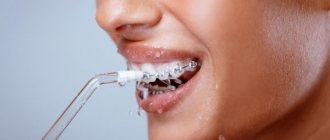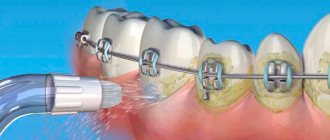In this article
- Why is it better to use balms for an irrigator?
- What should be the liquid for an irrigator?
- Which irrigator liquid is better?
- Is it possible to make irrigator liquid yourself?
- Conclusion
The irrigator allows you to maintain the health of your teeth and gums, protecting them from dental diseases. If you use it in conjunction with special solutions, you can achieve the maximum effect: reducing gum bleeding, eliminating inflammation and destroying bacteria. Let's try to figure out which irrigator liquid is better.
Modern medicine is aimed not only at treatment, but also at the prevention of pathologies. In order to prevent diseases of teeth and gums, an irrigator has been developed - an electrical device that is used for additional cleaning of the oral cavity. The pulsating stream of water created by the device washes away germs and food debris, cleaning even hard-to-reach places: behind the “eights”, between the teeth and behind orthodontic structures (braces, crowns and dentures).
According to dentists, if you use an irrigator every day after traditional brushing, the risk of developing caries is reduced, blood circulation in the gums is improved, enamel is strengthened, tissues are restored, etc. You can enhance the effect of using an irrigator by using special liquids instead of water: balms, rinses, etc. solutions.
Liquid for irrigator
Refilling the irrigator with a special liquid.
Recently, among oral care products, irrigators are gaining more and more popularity. Their principle of operation is based on the supply of a jet of special liquid under pressure, which cleanses the oral cavity and all its components from bacteria, plaque and dental deposits.
The functional purposes of liquids for irrigators include:
- Preventing the development of bleeding gums, gingivitis, periodontal disease.
- Strengthening gums.
- Strengthening the effect of using the device itself.
- Enrichment of the oral mucosa with minerals.
- Eliminating bad breath.
The use of liquids in an irrigator provides more thorough sanitation of the oral cavity. This occurs as a result of the penetration of the solution into hard-to-reach places between the teeth and into the periodontal tissues themselves.
Advice! Experts recommend using special solutions for irrigators. As a rule, their composition is enriched with useful substances, which ensures their wide spectrum of action.
How does an oral irrigator work?
Having figured out what it is needed for, let’s look at how the irrigator works. The design of the device includes three basic blocks:
- reservoir for water or medical solution;
- power unit with compressor;
- outlet type nozzle.
What is each of these elements needed for? Before using the device, the liquid container is filled with clean water or a special antiseptic solution for treating the oral cavity. A small tube is connected to the bottom of the reservoir, which supplies liquid to the power unit. The compressor increases the pressure, and water with increasing pressure moves through the outlet channel into the working nozzle. The latter forms a jet, with the help of which cleaning is carried out.
The nozzles differ in design, and the pressure level can be reduced or increased using a special adjustment knob, creating the necessary pressure and direction of the jet. If you plan to use the irrigator while traveling, it is better to choose a small, portable model that runs on batteries. If you need it for family use, give preference to a stationary one - it runs on mains power and is equipped with a large liquid reservoir.
Kinds
Do not fill the irrigator with running water!
Depending on the composition of the liquid for irrigators, they are classified into:
- Professional concentrates. Designed for use by dentists in hospital settings. Used for therapeutic purposes or in the postoperative period. Concentrates are often used during physiotherapeutic procedures. This is due to the fact that in addition to medicinal components, they contain antiseptic and various biological complexes.
- Household. These are special solutions produced by companies that specialize in producing oral hygiene products. They contain a much lower concentration of special additives, which allows them to be used for gentle daily hygiene.
- Homemade solutions. They contain various components, the therapeutic effect of which ensures their therapeutic effect. They are most often based on soda, sea salt, hydrogen peroxide and herbal infusions.
When choosing the liquid with which you will refill the irrigator, you should undergo a consultation with a dentist, and together with him agree on the specific type of solution. This will allow you to achieve a quick therapeutic effect from its use without harming the health of tooth enamel and gums.
Can I use an irrigator if my gums bleed?
Bleeding gums are not a contraindication. Do not forget that with the help of an irrigator, we, on the contrary, massage them and clean the oral cavity even better. People with heart disease, rosacea, acute periodontitis, as well as those who have recently installed an implant or simply undergone some kind of surgical intervention in the oral cavity should refuse to use the device (or use it with caution).
Article on the topic
Smile wider! How to get rid of bleeding gums
Top 9 best oral solutions
| Name | Description and benefits | Price |
| Waterdent _ | Concentrated phytocomplex containing fluoride, which is additionally used for rinsing the mouth. Effectively cleans interdental spaces, periodontal pockets, braces, implants and other types of dentures. Contains bischofite, chlorhexidine and xylitol. | From 365 rubles |
| Donfeel (Donfil) | It has two types: a solution for daily use and for the prevention of dental pathologies. Depending on the purpose of the liquid, it contains various natural components based on extracts of medicinal herbs: lemon balm, mint, chamomile, calendula and echinacea. The absence of alcohol-containing components allows this liquid to be used by children. | From 230 rubles. |
| TerraSol (Terrasol) | Available in the form of a concentrate. Characterized by a powerful antimicrobial effect. The color of the liquid is deep blue, which limits its use to people prone to allergic reactions. | From 380 rubles. |
| Peridex (Peridex) | Refers to professional products. Contains 0.2% chlorhexidine. The main pharmacological action is the removal of bacteria in the oral cavity. This allows the drug to be widely used for therapeutic purposes and especially after surgical interventions. | From 120 rubles. |
| PerioGard (Periogard) | An effective liquid that has an antiseptic effect. It does not contain alcohol and contains chlorhexidine digluconate at a concentration of 0.2%. Clinical indicators: reduces the formation of dental plaque, prevents the development of gingivitis, inhibits the growth of bacteria, relieves periodontal inflammation. Designed for daily use. | From 285 rubles. |
| Asepta | Concentrate for a broad-spectrum irrigator. The active ingredients ensure the removal of bacterial plaque, prevent the deposition of tartar, eliminate inflammatory processes in the periodontium and its bleeding. An ideal product for the care of dental structures of any type. | From 415 rubles. |
| Albadent | A universal concentrate, which can be used daily as a hygiene product, or as a preventative drug, as well as in the treatment of periodontal disease and gum inflammation. The active components of the product help reduce the sensitivity of tooth enamel, effectively strengthen it and eliminate plaque of any density. | From 245 rubles. |
| Irix | Contains disinfectants. Helps reduce gum bleeding and prevents the development of carious lesions. The presence of menthol in the composition provides refreshment of the oral cavity for a long period of time. One of the main advantages is the absence of foam when using the product. | From 480 rubles. |
| Professor Persin | Fluoride-free liquid based on medicinal herbs. Intended for daily use for the prevention of various dental pathologies, especially gingivitis and caries. When foci of inflammation develop, it effectively stops them and stimulates tissue regeneration. | From 460 rubles. |
Action
Choose your irrigator fluid based on your doctor's recommendations.
Irrigator fluids have the following effects:
- Disinfectant. These liquids contain antiseptic components that effectively destroy bacteria in the oral cavity and prevent their proliferation.
- Therapeutic. These are special liquids containing calcium or fluoride that promote remineralization of dental bone tissue. The presence of medicinal herbal extracts in the compositions provides a wound-healing effect, relieves inflammatory processes and pain syndrome in periodontal diseases.
- Deodorizing. Such solutions contain mint or menthol components, which provide fresh breath for a long period of time.
- Preventive. The use of special liquids intended for daily use prevents the development of various dental pathologies. At the same time, the bone tissue of the teeth and gums is enriched with useful substances and minerals. Also, such solutions are able to stimulate blood microcirculation in periodontal tissues, which leads to strengthening of teeth and gums.
Reference! In many ways, the effectiveness of using an irrigator depends on the correct choice of liquid. Its choice should be made exclusively by a specialist, taking into account the clinical picture in the oral cavity and the pharmacological action of the drug.
Why pour water into the irrigator?
The irrigator is a device that consists of three main elements: a holder, a tip with a nozzle and a reservoir. A motor operates inside the device, which creates pressure and supplies water through the tube. It splashes out in the form of a jet. When cleaning the oral cavity, it should be directed to the teeth and gums.
Irrigators are either stationary or portable. They differ in several respects, one of which is the size of the water tank. It can be small (less than 100 ml) and voluminous (up to 1000 ml). Portable portable devices are equipped with small containers, which are enough for quick brushing of teeth. They take them with them on the road because they do not take up much space in a purse or travel suitcase.
Stationary oral irrigators, which are typically hung on the bathroom wall, have large reservoirs. There is enough water in them for several procedures. So, a 500 ml container is designed for approximately 2-3 people. Let's find out what liquid is poured into the irrigator, other than water, and why.
Basic rules for choosing a liquid
When choosing a solution for an irrigator, you should consider its purpose and composition. Depending on the active components, the solutions used during irrigation are intended for:
- Strengthening enamel with fluoride content.
- Treatment and prophylactic purposes. They contain plant substances and antiseptic drugs.
- The presence of menthol and mint extract in their composition provides freshness to the breath.
It is also worth considering the type of liquid. It is strictly forbidden to use professional compositions at home. People prone to allergies are recommended to give preference to hypoallergenic balms. When preventing dental pathologies, as well as for children, special gentle formulations should be used, preferably without alcohol.
If there is a problem with the constant occurrence of inflammation of the mucous membranes of the oral cavity, preference should be given to liquids that have an anti-periodontal effect. They contain compositions of various bioantioxidants and anti-caries additives.
A preliminary consultation with a dentist will help you make the right choice. Using unsuitable solutions can lead to side effects such as thinning or darkening of tooth enamel.
Indications and contraindications for use
An oral irrigator will be useful to everyone without exception. Dentists especially recommend using it for:
- pregnancy (the teeth and gums of most women carrying a child suffer greatly; it is recommended to start using the device at the earliest stages);
- the presence of any orthodontic structures (their design features are such that it is impossible to properly clean them with a regular brush);
- “crowding” of the dentition or the complexity of its relief (it is difficult to clean the spaces between the teeth);
Ideally straight teeth are quite rare; teeth with complex relief are much more difficult to clean - diabetes (one of its symptoms is slow regeneration of the mucous membrane when it is easily damaged; the irrigator minimizes the risk of injury);
- bad breath, including those caused by smoking (high-quality plaque removal);
- frequent infectious dental diseases (fighting pathogenic microflora);
Stomatitis is one of the most common infectious diseases of the oral cavity. - reduced immunity (means low resistance of the body to any diseases, including dental ones).
Video: using an irrigator with orthodontic structures in the mouth
There are no absolute contraindications for using the irrigator. But in some cases, a preliminary consultation with a dentist is recommended:
- age up to 6–7 years (the child needs the help of parents or their supervision when using the irrigator independently; too high water pressure can damage the gums, and the jet is likely to get into the respiratory tract due to careless movements);
- period of exacerbation of any dental diseases, especially those accompanied by an inflammatory process (the use of an irrigator is possible only in the remission stage, a specialist will help you select special compounds to combat the disease);
- increased sensitivity and tendency of the gums to bleed (it is necessary to individually adjust the parameters of the irrigator and select a suitable liquid);
- problems with the heart and blood vessels, including a history of heart attack and stroke, the presence of a pacemaker, artificial heart valves (consultation with a dentist and cardiologist is required);
- recent surgery (not fully healed incisions and sutures on the oral mucosa);
- the presence of tumors or other neoplasms of unknown nature in the mouth.
Small children can use an irrigator, but under adult supervision
How to use it correctly
Regardless of the type of liquid, the rules for its use should be strictly followed:
- If you use household products, you should carefully study their operating instructions.
- Do not use the liquid if there are contraindications and there are no indications for use.
- The use of homemade solutions is permissible after complete dissolution of all components in them and filtration of herbal decoctions.
- Most of these liquids are presented in the form of concentrates, requiring their preliminary dilution in a ratio of 1:10.
- To prepare liquids, you must use only purified, distilled or boiled water.
- The water temperature should not be more than 38 degrees.
- The most appropriate time for irrigation is the evening after brushing your teeth.
- The liquid is directed to the gums at an angle of 80 degrees, and the duration of the procedure should not exceed 15 minutes.
- The frequency of use of a particular liquid is determined taking into account its type and purpose.
Recipes for making your own liquids for irrigators
Many experts recommend using homemade solutions from gentle ingredients that are easy to make with your own hands:
- Soda solution. 10 g of baking soda should be thoroughly dissolved in 0.3 liters of warm boiled water.
- Salt liquid. Mix 300 ml of warm purified water with 5 g of unflavored sea salt. Stir until it is completely dissolved.
- Hydrogen peroxide based solution. Mix 250 ml of water at room temperature with 10 ml of the main raw material.
Important! Despite the ease of preparation of these solutions, their use and duration of use should be agreed with a doctor. Incorrect concentration and prolonged use can lead to dehydration of teeth, increased sensitivity, as well as destruction of connective tissue and loss of dental strength.
Where can I buy
Carefully study the composition and expiration date before purchasing.
Professional solutions for irrigators are sold by representatives of pharmaceutical companies, which, as a rule, work exclusively with dental clinics.
Household liquids are freely available. Today, they can be easily purchased in household chemical and hygiene stores, pharmacies, and also in online stores.
When purchasing liquid for an irrigator by any means, you should pay special attention to its expiration date, manufacturer and composition. This will avoid the use of low-quality products that may be produced by illegal companies.
